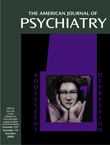Smoke and Mirrors: The Devastating Effect of False Sexual Abuse Claims
This is a must-read book for the public as well as mental health professionals. Terence W. Campbell demonstrates how false sexual abuse claims can mark innocent people as well as families for life. He illustrates his point by recounting numerous cases where he has testified as a consultant.
The first section of the book describes the origins and misinterpretations that lead to false sexual abuse claims. Campbell demonstrates how this horrible experience can happen anywhere and to anyone and states that the frequency of false allegations of child sexual abuse likely exceeds that of reports of actual abuse. He discusses how these false allegations are detrimental to those who are victims of actual abuse. The descriptions of the allegations are very explicit, detailed, and substantiated by real-life examples. Campbell demonstrates how children respond to therapists in a way that the therapists want. He explains how a child will tell the interviewer what the interviewer may want to hear because the child may think that is the correct answer. The stories become so entangled that the alleged victims and their families begin to believe their own fabricated stories. The accused then becomes the actual victim. Innocent people spend time in prison and are scarred for life. Campbell gives examples of numerous tools that have been developed to screen children for sexual abuse, such as the Sexual Abuse Legitimacy Scale developed by Dr. Richard Gardner. These scales are often used incorrectly, and the procedural recommendations are often ignored. Some interviewers have already made up their mind that the child has been sexually abused before using the scales.
In the second part of the book, Campbell hones in on the role of psychotherapists in bringing out memories that are not real. He demonstrates how clients are convinced after a session with the therapist that they were sexually abused as children in horrible ways and that they need further sessions to remember and to deal with the past. Campbell demonstrates how some clients are treated by poorly trained therapists who can destroy relationships among family members by contaminating what the clients think and remember. There definitely needs to be a change in the way some aspects of mental health practice are overseen. The stigma regarding the field of mental health thrives because of the few who practice poorly.
This book is easy to read and understand. Typographical errors and misspellings are rare, and the editing is of high quality. Overall, Smoke and Mirrors is a must read for any professional who deals with the public, especially anyone in the health and judicial system.



